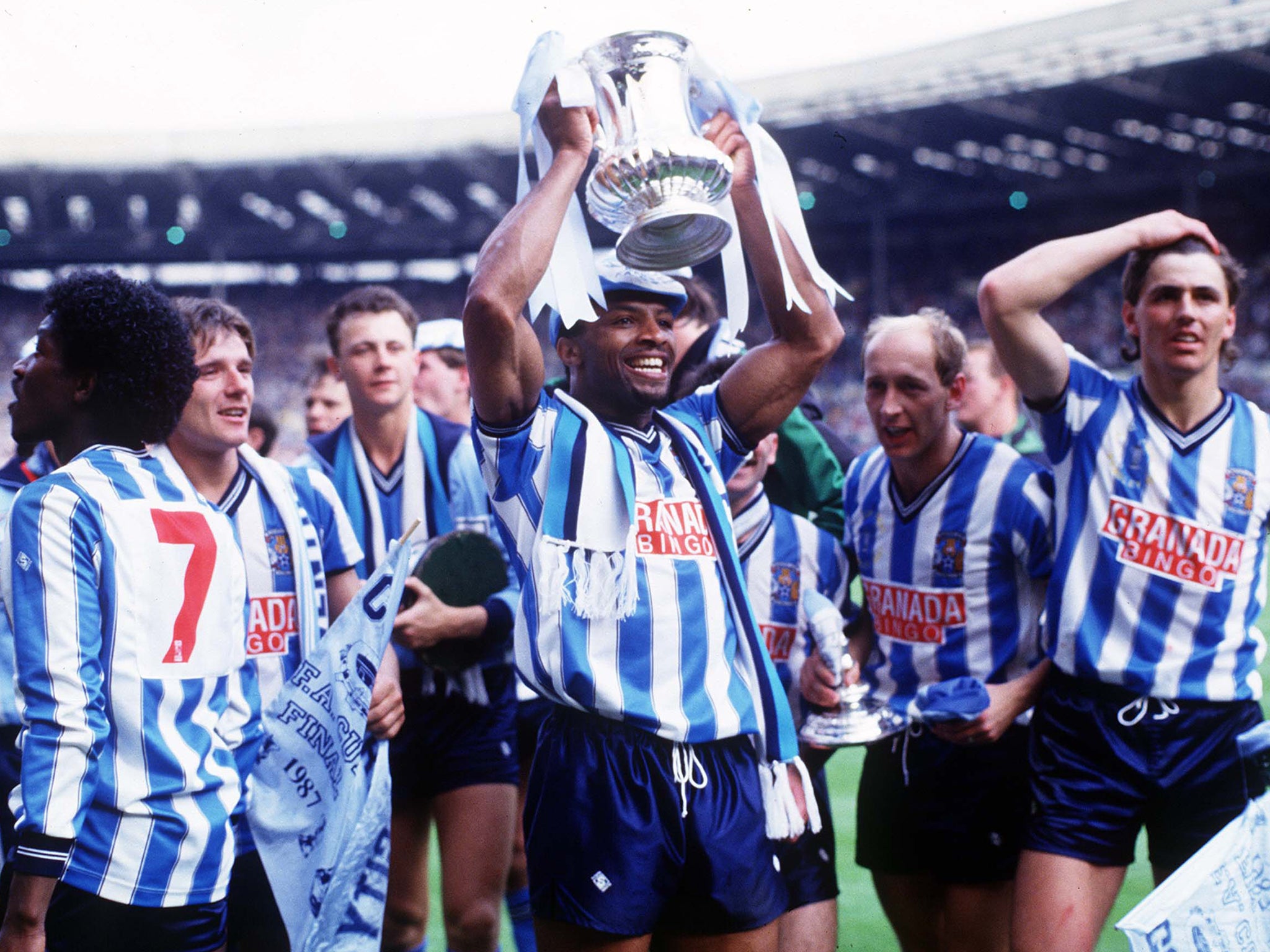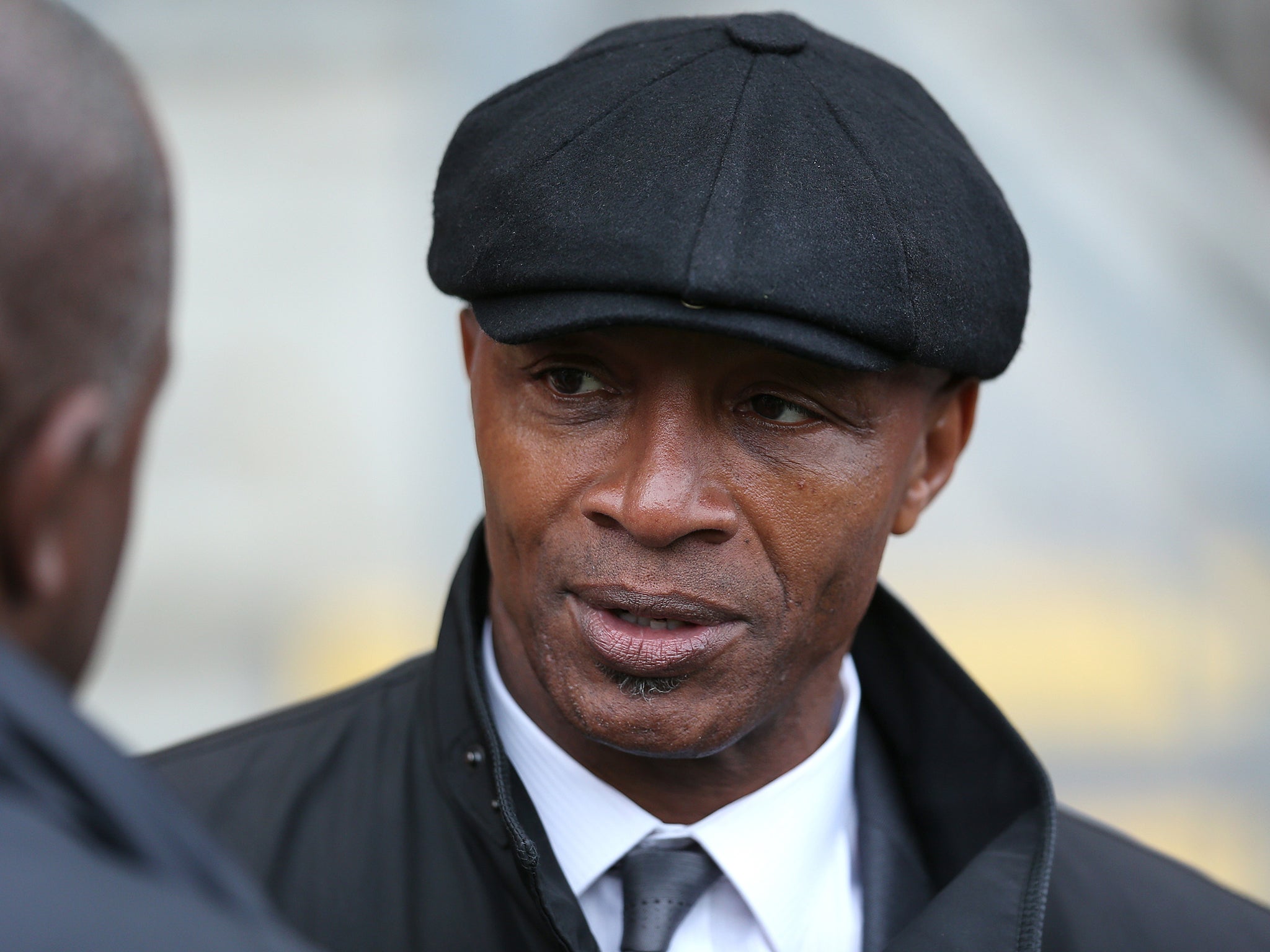Cyrille Regis: England footballer whose majesty on pitch and ability to take bigotry in his stride blazed a trail
The outstanding striker succeeded in being judged on ability, relegating the racism he encountered to a sideshow – inspiring generations of black players

Your support helps us to tell the story
From reproductive rights to climate change to Big Tech, The Independent is on the ground when the story is developing. Whether it's investigating the financials of Elon Musk's pro-Trump PAC or producing our latest documentary, 'The A Word', which shines a light on the American women fighting for reproductive rights, we know how important it is to parse out the facts from the messaging.
At such a critical moment in US history, we need reporters on the ground. Your donation allows us to keep sending journalists to speak to both sides of the story.
The Independent is trusted by Americans across the entire political spectrum. And unlike many other quality news outlets, we choose not to lock Americans out of our reporting and analysis with paywalls. We believe quality journalism should be available to everyone, paid for by those who can afford it.
Your support makes all the difference.Cyrille Regis never asked to be a role model or trailblazer for aspiring black footballers; he simply wanted to play and be judged on his ability. But his explosive cocktail of pace, power and skill, allied to his dignity in the face of racist abuse from opponents and spectators, ensured he inspired the next generation of young black players.
Rio Ferdinand, Ian Wright, Mark Bright, Andy Cole, Leroy Rosenior and myriad others lined up to pay tribute to Regis after the former West Bromwich Albion, Coventry City and England striker suffered a fatal heart attack less than a month before he would have turned 60.
Apart from making his sport more inclusive, what distinguished Regis was the way he combined majesty on the pitch with humility off it. For all his lithe movement and stunning finishing – encapsulated by the strike for Albion against Norwich which won him Match of the Day’s Goal of the Season in 1982 – he was never found “blasting” anyone in the tabloid press.
Regis, who was born at Maripasoula, French Guiana, was five when his St Lucian father moved the family to west London. On leaving school he trained as an electrician and played non-league football for Molesey and Hayes. He was 19 when Albion signed him for £5,000 in 1977 on a 12-month contract. “If it didn’t work out I could go back to being an electrician,” he later recalled. Within months he scored twice on his first-team debut, in the League Cup against Rotherham, and again with a fine solo goal against Middlesbrough in his first top-flight appearance.

Having also netted on his FA Cup debut, Regis went on to be named Professional Footballers’ Association Young Player of the Year in 1978. His career went into overdrive after Ron Atkinson became Albion manager and harnessed the attacking talents of Regis, Laurie Cunningham and Tony Brown. In December that year Albion memorably won 5-3 at snow-swept Manchester United, Regis hitting their final goal, and they finished third in the First Division.
Regis, Cunningham and a third black player, Brendon Batson, were labelled “The Three Degrees” by Atkinson after the American female singing group of that name. Three black players in one team was unusual and ensured they were vilified at certain away grounds.
In 1982, before Regis won his first England cap, against Northern Ireland, he received a bullet through the post. A note said: “You’ll get one of these through your knee if you step on our Wembley turf.” Interviewed in Backpass magazine, he said he laughed off the threat. “I wasn’t intimidated. Why should I be? The guy who sent it was a coward.”
In 1984 Regis joined Coventry, then a fixture in the top flight, and three years later he picked up his only winner’s medal after the Sky Blues beat Tottenham in the FA Cup final. The same year, he won his fifth and final cap, against Turkey, though he never completed 90 minutes for England.
After his close friend Cunningham was killed in a car crash in 1989, Regis became a born-again Christian following what he described as “a real encounter with Jesus”. When he was reunited with Atkinson at Aston Villa the manager teasingly remarked: “We know Cyrille’s found God. Now I need him to find his old devilry.”
After 112 goals in 301 matches for Albion and 62 in 274 with Coventry, the goals flowed less freely for Regis at Villa, then Wolves, Wycombe and Chester, for whom he played his final league game in 1996, aged 38. Later he worked as a coach at West Brom, as a football agent and became a trustee of Christians In Sport, while in 2008 he was awarded the MBE. He is survived by his second wife, Julia, and by a son and a daughter.
Cyrille Regis, footballer, born 9 February 1958, died 14 January 2018
Subscribe to Independent Premium to bookmark this article
Want to bookmark your favourite articles and stories to read or reference later? Start your Independent Premium subscription today.
Join our commenting forum
Join thought-provoking conversations, follow other Independent readers and see their replies
Comments